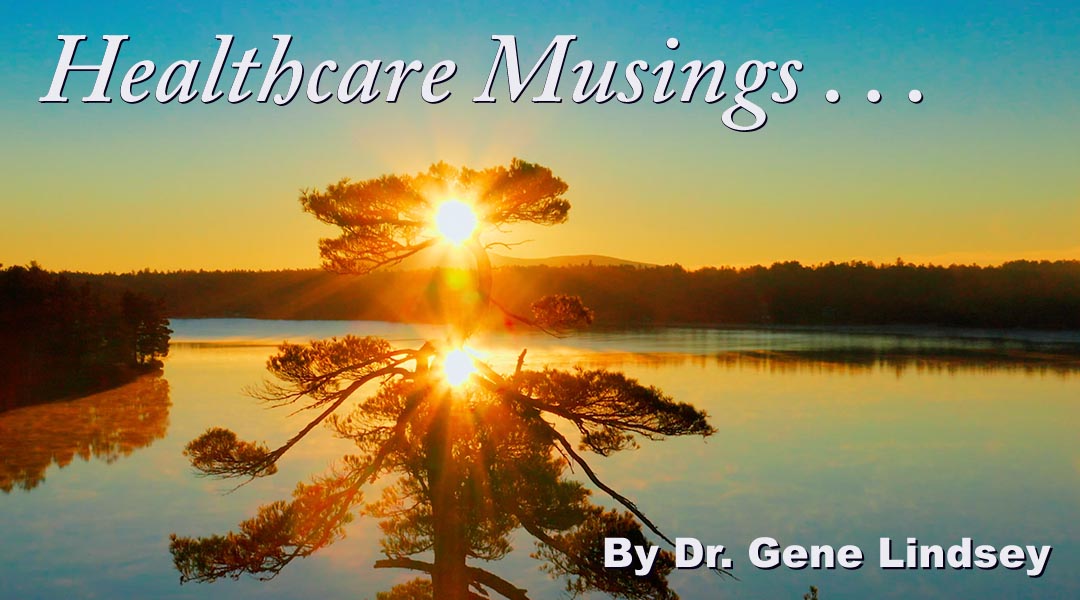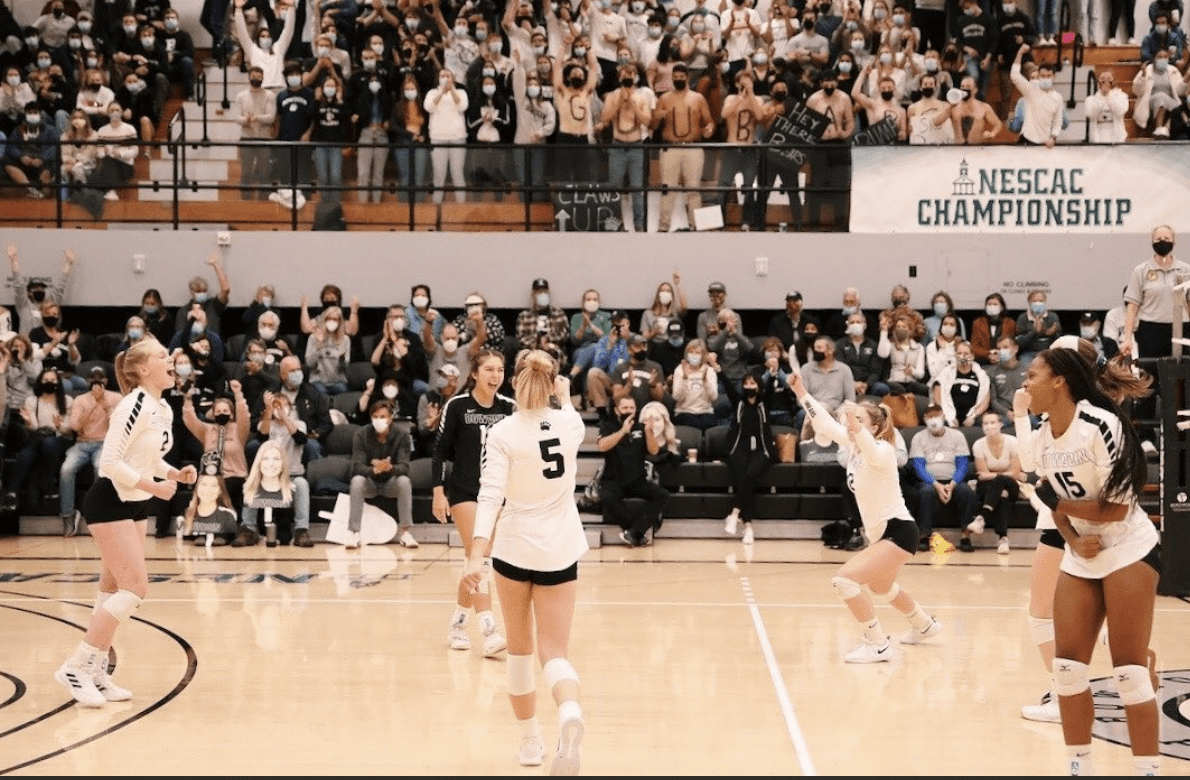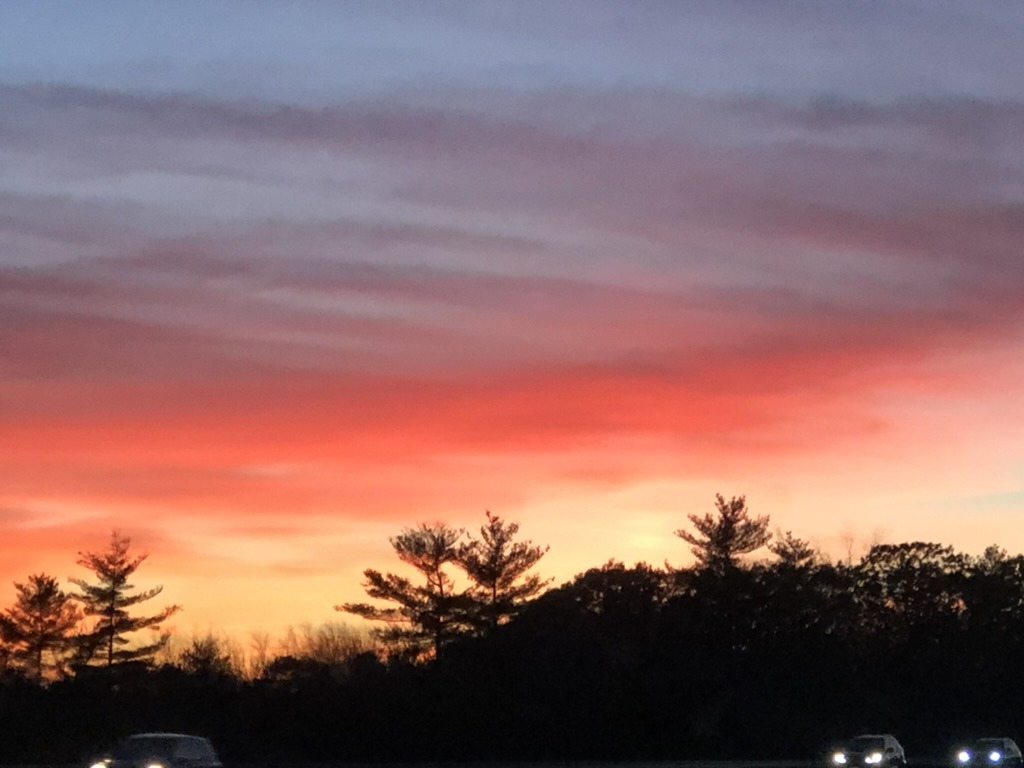November 12, 2021
Dear Interested Readers,
Veterans Day and Our Social Programs
Last week I introduced you to the podcast, Going for Broke, which is hosted by former NPR broadcaster Ray Suarez and produced by a collaboration between The Nation and the Economic Hardship Reporting Project. Each week the podcast tells the story of a person who has struggled with some aspect of poverty. This week Suarez presents thoughts on how we manage programs to improve poverty and healthcare for veterans. The person who tells his story of economic distress is a man named John Koopman who is a former Marine who lost his job as a war correspondent with the San Francisco Chronicle in 2008 during the “Great Recession.” After he lost his job, he floundered for many years until he finally accessed his VA benefits. It seemed totally appropriate to me that this week’s podcast discusses issues of poverty and healthcare that concern veterans since yesterday was Veterans Day.
I am like many other Americans. For many years I took Veterans Day for granted while being careful to thank every person whom I saw in uniform for “their service.” My wife and I are proud that we have friends and relatives who have served our country with honor. My wife worked for many years as a nurse practitioner at the VA hospital in West Roxbury, Massachusetts where she got great satisfaction from helping “her vets” with the management of their CHF. The mundane question that I faced every Veterans Day was whether or not I would need to work. I fear that for many of us the holiday has been a fixture on our calendars for as long as we can remember, but we have not used the day to give appreciation and attention to the service of our citizens who gave us their time and energy in uniform that the holiday is meant to honor.
Veterans Day has an interesting history that dates back to November 11, 1918, when the fighting in World War I, the war to end all wars, ended with an armistice. For years we celebrated “Armistice Day.” Six months after the armistice day, World War I ended officially when the Treaty of Versailles was signed on June 28, 1919. Between 1918 and 1953, November 11 was known as Armistice Day and was primarily meant to honor those who died in WWI. In 1954, during the Eisenhower administration, the name was changed to Veterans Day. Do you know the difference between Memorial Day in May and Veterans Day in November? Both days honor our military. If you followed the link you learned that:
Memorial Day, which falls on the last Monday in May, honors the men and women who died while serving in the military. This solemn occasion is a time to reflect on these American patriots who made the ultimate sacrifice while protecting and defending the country they deeply loved. Veterans Day, observed every November 11, recognizes all who have served in the Armed Forces.
It occurs to me that when we observe Veterans Day we have an opportunity to reflect on how we can improve the ongoing life experience of those members of our military who are still living. In many ways, The challenge of Veterans Day is much greater than the challenge of Memorial Day. On Memorial Day we have parades, hear speeches, and place flags on tombstones to honor the memory of those who lost their lives defending the freedoms we often take for granted. Veterans Day should demand more from us because the people we honor are still with us. When we reflect on the meaning of Veterans Day we should be motivated to improve the life experience of those who served or otherwise our “thank you for your service” is an empty gesture.
The piece on Going for Broke touches on several subjects that pertain to veterans that are similar to anyone who seeks help from our social services safety net. Many veterans are not aware of the programs that we offer that might help them. Some veterans are so psychologically damaged that they can’t advocate for themselves. PTSD and post-service suicide are painful evidence of the emotional traumas of service. One of the most significant accomplishments of Kearsarge Neighborhood Partners, the non-profit that my wife and I helped to found, has been the work that was done to secure the benefits that were available to a veteran for whom the administrative barriers were too great for him to traverse alone.
The veteran we helped has a wife and two children. He works as a carpenter and despite his hard work they faced homelessness for issues beyond their control. He had served in Iraq and has service-related disabilities. He earns too much for Medicaid and has paid several hundred dollars a month for help managing his problem with pain medications that were related to his service-related injuries. He just couldn’t work his way through the paperwork and delays that prevented him from getting the benefits that should have been his without great effort. With the help of a lawyer in our group and over a period of more than six months the task of getting him what he deserved was accomplished. He now gets a substantial disability payment every month. He is treated in the VA system for his continuing medical problems, and with a VA loan, he and his family have moved up from near homelessness to being the proud owners of a very lovely home.
In the last half of the podcast, Suarez talks with Aaron Jackson, a Ph.D. candidate at the University of California San Francisco who is a veteran and is studying the VA health system. Jackson points out that over the years programs for medical care, education, and home loans have lifted millions of veterans out of poverty and into the middle class. Of interest, he notes that there are twenty million veterans who are eligible for VA medical care, but only nine million vets get care in the system. Some vets are probably covered by their employers, but it is also likely that many veterans are excluded for some administrative reason, or like our client don’t have the ability to successfully navigate the system and claim the support for which they are entitled. Jackson also acknowledges that over the years there have been racial inequities in the distribution of VA benefits.
Veterans Day reminds me that studying our experience and lessons learned in the process of providing benefits to veterans deserves our attention because lessons learned by the VA could provide valuable guidance in our efforts to improve the social determinants of health for all Americans. Perhaps we should consider the VA programs and services to be pilot programs for what we offer all Americans in our efforts to eradicate poverty, improve the health of the nation, and position ourselves for sustained leadership as an example of the benefits of an open democracy that strives to promote the benefits of economic opportunity and equitable health care for everyone. Some might argue that we could never afford to be as helpful to every American as we are to those veterans who can make the system work. I am impressed that there are respected economists like Paul Krugman who argue that we have the capability to offer a much more generous set of benefits to every American. Krugman and President Biden have said that not lifting up everyone will in fact increase the odds that eventually we will all suffer as our country falls behind the nations that more effectively address the social concerns and inequalities that plague many of their citizens.
The president’s “Build Back Better Bill” would not offer the equivalent of VA benefits that my client has enjoyed to every American, but as it was originally conceptualized it would have extended and improved health care coverage for many Americans. It would have enabled many young people to continue their education for at least two more years in a public college for free. It would have offered families help with child care and with eldercare. It would have offered poor families with children more income supports that would return huge dividends in the future since we know from many research studies that the children of poverty achieve less and suffer more as they become adults. Much of the pushback from Republicans has been condensed into the accusation that the Democrats are pushing socialist ideas. Krugman sums it up:
…while Republican politicians routinely claim that Democrats are anti-American and that Democratic proposals are Marxist, history tells us that the key elements of the legislation we’re probably about to see — aid to middle-class and poor children together with higher taxes on the wealthy — are quintessentially American ideas.
…while Republicans denounce pro-child policies as socialist and try to promote private schools, they, not Democrats, are rejecting our nation’s traditions.
…We are … the nation that invented progressive taxation. America has had progressive income taxes and estate taxes — that is, taxes that are levied at a higher rate on large incomes and estates — since 1916.
…the early proponents of these taxes didn’t view them simply as ways to raise revenue. They also explicitly called for taxes on the wealthy as a way to limit inequality, and in particular to prevent the emergence of a hereditary oligarchy. Thus in 1905 Theodore Roosevelt argued that it was essential to prevent the “inheritance or transmission in their entirety” of “fortunes swollen beyond all healthy limits,” and in 1907 he called for a “heavy progressive tax” on estates to achieve this goal.
A modern U.S. politician who said anything similar would be accused of engaging in un-American class warfare. But if this be class warfare, make the most of it; like spending to help children from lower-income families, progressive taxation is as American as apple pie.
Krugman is not the only academic who points out that social programs are a consistent part of our history and not a slippery slope to Communism. My wife is a regular reader of Boston College’s Professor Heather Cox Richardson’s newsletter. My wife shared with me Professor Cox Richardson’s newsletter from Monday where she discusses the misuse of the term socialism in the context of the recently passed infrastructure bill and the even larger proposal that is still pending and will require the support of Senators Joe Manchin and Krysten Sinema if it is to pass by the reconciliation process. Professor Cox Richardson is providing a historical background for the same subject that Max Boot discusses in his opinion column in The Washington Post. Boot reports that Republican leaders like Kevin McCarthy, Marco Rubio, and Mitch McConnell have continued a ninety-year Republican strategy by calling the Build Back Better bill just another irresponsible Democratic exercise in socialism. Cox-Richardson writes:
Long before the Bolshevik Revolution in Russia brought the fears of a workers’ government to life, Americans who opposed regulation insisted that their economy was under siege by socialists. That conviction did indeed lead to a redistribution of wealth, but as regular Americans were kept from voting, it went dramatically upward, not down.
Regulation of business and promotion of infrastructure is not, in fact, the international socialism today’s Republicans claim. According to Abraham Lincoln, who first articulated the principles of the Republican Party, and under whom the party invented the American income tax, the “legitimate object of government, is to do for a community of people, whatever they need to have done, but can not do, at all, or can not, so well do, for themselves—in their separate, and individual capacities.” Those things included, he wrote, “public roads and highways, public schools, charities, pauperism, orphanage, estates of the deceased, and the machinery of government itself.”
Over the years the VA healthcare system has had its ups and downs. I have heard its healthcare system derided as “socialized medicine for men only” which is wrong at many levels including the fact that the VA health system serves many veterans who are women. It is ironic that former VA Administrator and US Senator from Georgia, Max Cleland died this week.
As a captain in the Army in 1968, former Senator Cleland lost both legs and an arm when he picked up a hand grenade that had been dropped by another soldier as they were exiting a helicopter during the battle for Khe Sanh. After a difficult physical and emotional recovery from his injuries, he was appointed as the Administrator of Veterans Affairs by President Carter in 1977. That position is now a cabinet-level appointment. He served for the four years of Carter’s term. The Washington Post quoted President Biden’s comment this week on the passing of the former senator and VA administrator in their report of his death.
President Biden issued a statement calling Mr. Cleland, with whom he had served in the Senate, “a lifelong champion of the dignity and rights of working people and America’s wounded veterans. His leadership was the essential driving force behind the creation of the modern VA health system, where so many of his fellow heroes have found lifesaving support and renewed purpose of their own thanks in no small part to Max’s lasting impact.”
There is one other issue worth remembrance regarding former Senator Cleland. He lost his bid for reelection in 2002 because he was attacked as “too liberal with socialist tendencies.” In the campaign, his Republican opponent, Saxby Chambliss, who had avoided military service, benefited from one of the most heinous attack ads ever produced by Republicans. It was so bad that Republican Senators John McCain and Chuck Hagel who were also veterans of Vietnam denounced it. The New York Times obit tells the story that reveals how low politics can go. The story reminds us of Donald Trump’s equally disparaging remarks about McCain.
Running for another term just a year after the terrorist attacks of Sept. 11, 2001, he was the target of an infamous 30-second television spot that showed images of Osama bin Laden and Saddam Hussein while it questioned Mr. Cleland’s commitment to homeland security and implied that he was soft on the war on terror.
It was the commercial’s images in particular that created the uproar. Even prominent Republicans, including Senators John McCain and Chuck Hagel, both Vietnam veterans, were outraged.
“I’ve never seen anything like that ad,” Mr. McCain told The Washington Post. “Putting pictures of Saddam Hussein and Osama bin Laden next to a picture of a man who left three limbs on the battlefield — it’s worse than disgraceful, it’s reprehensible.”
By Thanksgiving we will know whether or not a pared-down Build Back Better Bill will be passed after gaining the approval of Senators Sinema and Manchin. If they support the bill will Mitch McConnel call them socialists? I am resigning myself to the reality that just as we make it hard for veterans to get the help they need we are likely to limit our future by continuing to deny help to many who could be much more productive if we could move away from our sense that those in poverty are poor through errors that they made or if we offered them some help they would steal more than they deserve.
Until we can enlighten ourselves to the potential universal benefits of lifting everybody out of poverty, noble goals like the Triple Aim and curbing global warming will remain as distant as Dr. Martin Luther King Jr.’s dream of a country where we are all “…Free at last…” Isn’t freedom from the pain and suffering of poverty part of the universal freedom and opportunity that our veterans fought for?
Almost Indian Summer
Last weekend was terrific in several ways. First, the Bowdoin womens’ volleyball team won the New England Small College Athletic Conference championship in three exciting games against Hamilton, Amherst, and Wesleyan.
Now it is on to the Division III NCAA regional tournament that will be played at MIT this weekend.
The weather has been gorgeous with clear blue skies and daytime temps in the low fifties after frost from overnight temps in the twenties. It felt more like early October than early November. Last year we had our first snow before Election Day. Could the warmer fall be an upside to global warming? The weather made it a little easier to turn back the clocks.
During the ride back from Brunswick, we enjoyed a gorgeous sunset that was a preview to even better weather for the first few days of this week.
Despite the nice weather, there is evidence that winter is near. I haven’t seen a loon in several days. The loons winter on the Maine coast near Wells and Old Orchard Beach. The temp has been below freezing every night so it makes sense that the loons would leave before there is early ice on the lake. Other birds are also on the move. During the warmer months, we see an occasional Canadian goose. I don’t hold them in high esteem because when they gather in groups there is always a mess. This week while rounding the far end of the lake I was startled to see a gaggle of over ninety Canadian geese in a cove near a turn in the road. Where were they going?
This week’s header, like last week’s picture, was lifted from a video published by my neighbor, Peter Bloch. The video is appropriately titled, “Awaken the Lake.” The piece is three and a half minutes of visual beauty presented with very relaxing music. You will definitely get a lift well worth the time investment. Peter must be an early riser because the videos last week and this week were both shot around sunrise. This week’s offering was an edited blend of footing taken over a three-day span using his drone and his iPhone. You may see pictures that I lifted from Peter’s work for several weeks because the subject was Little Lake Sunapee, “my lake,” at sunrise.
I don’t know how many dry, bright days with temps in the high fifties or low sixties we have before next April, but I am sure that there won’t be many. I hope that you can be out and about enjoying every nice fall day that remains before the colder weather comes our way.
Be well,
Gene






Having spent my life “battling” conservatives, I want to offer another great reason for universal health care: more people will become entrepreneurs! Health insurance is a big barrier–I think especially for women.
I started a non-profit that provided consulting services for low-performing public schools. I was able to recruit some fantastic educators, but I”m quite sure without having health insurance in their package, they would never have joined us!